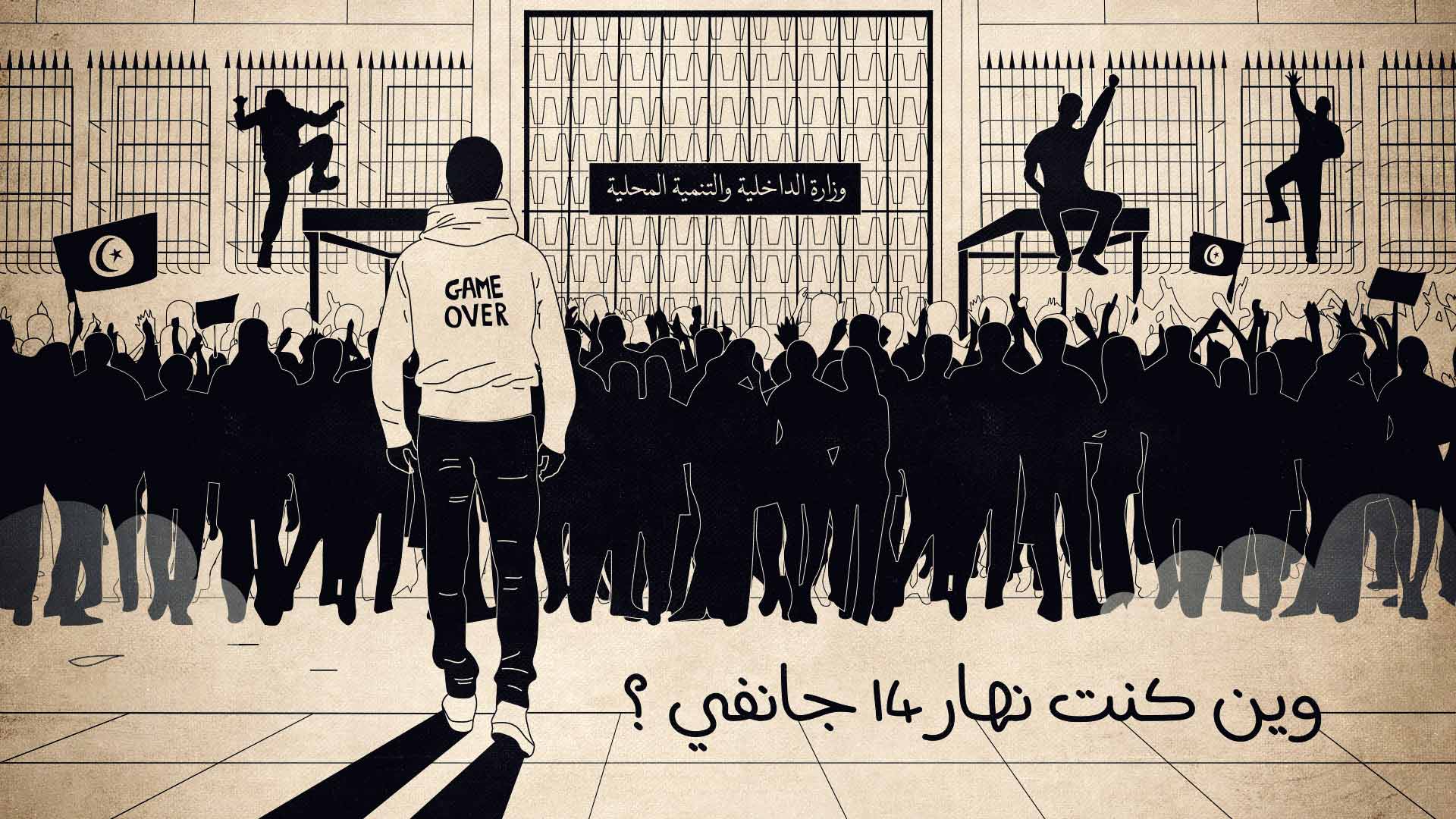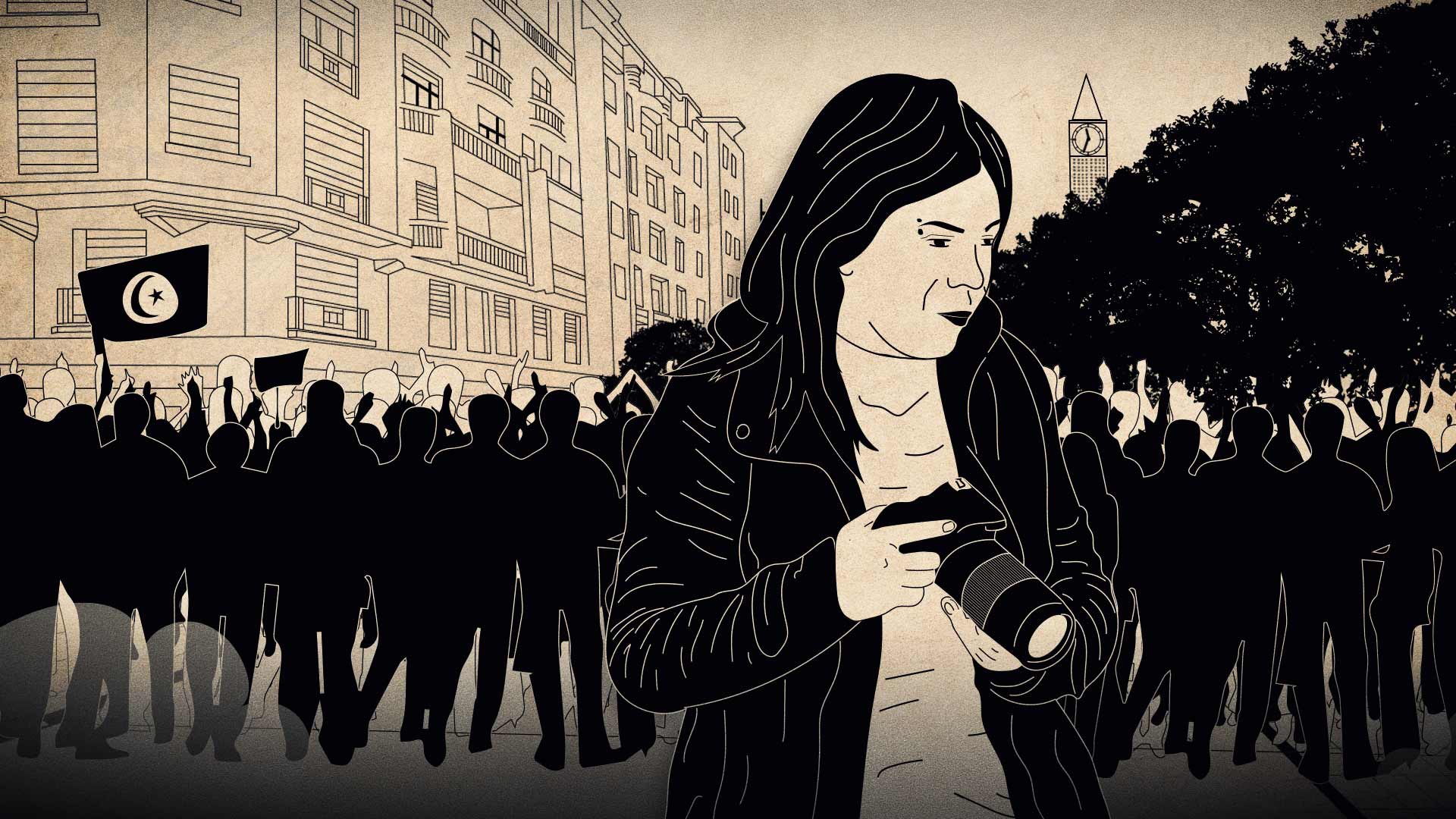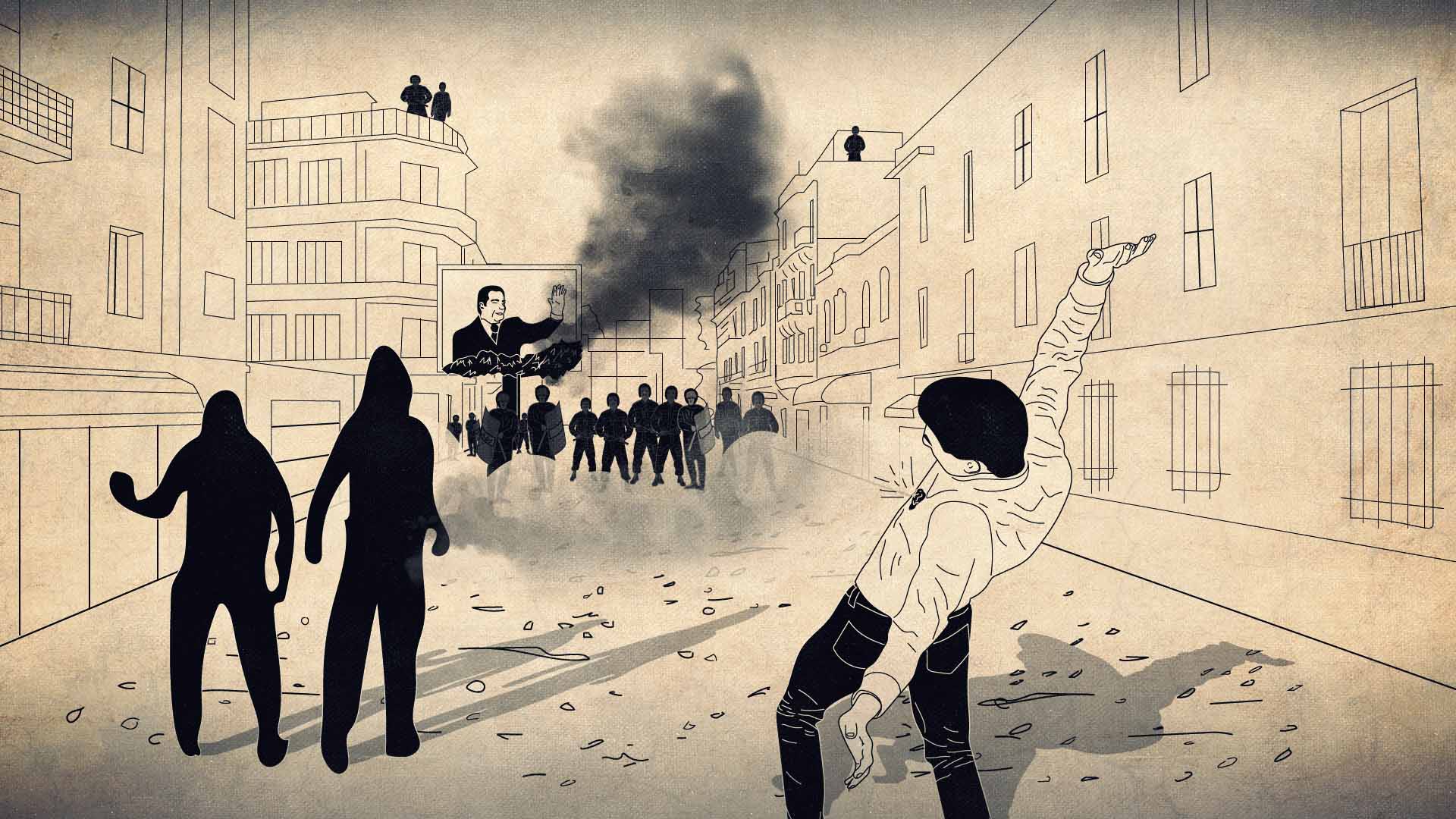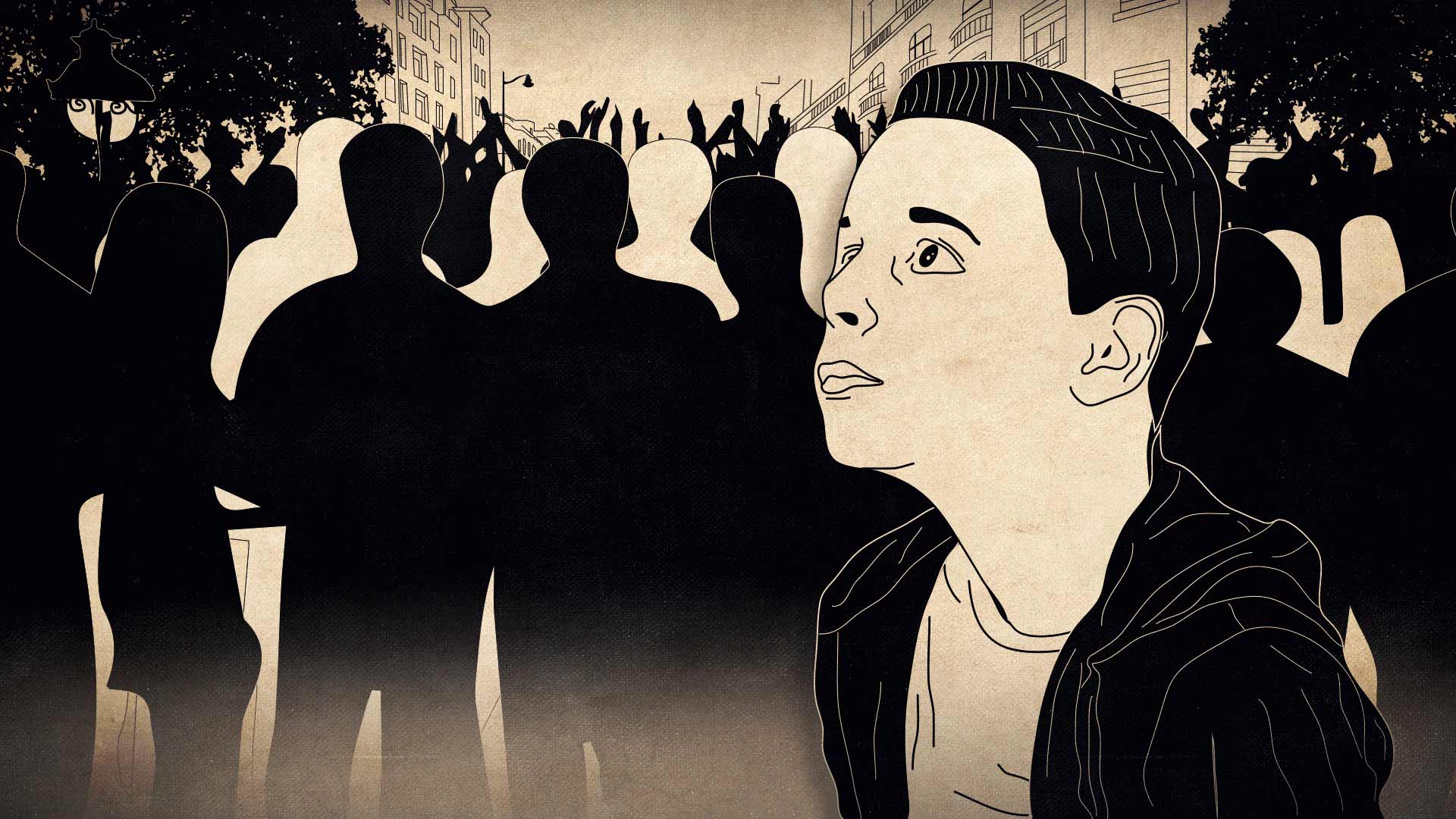| EPISODE 3
A Night at the Hotel
Created by
Inkyfada Podcast
Directing
Bochra Triki, Monia Ben Hamadi
Music, Sound Design & Mixing
Oussema Gaidi
Voice-Over
Bochra Triki
Subtitles
Shams Radhouani Abdi, Yasmin Houamed
Illustration
Marwen Ben Mustapha
With the collaboration of
Yassine Kawana
That day, psychoanalyst Nedra Ben Smail cancelled all of her appointments. Her intuition was telling her to go to Habib Bourguiba Avenue, just like the thousands of other demonstrators on that day.
She found herself with a handful of friends in front of the Carlton Hotel, which she owned. She describes these first moments of the demonstrations as celebratory, but also completely oblivious of what was to come. Protesting in front of the Ministry of the Interior seemed almost dreamlike to her. The funeral procession passed through the avenue and the festivities faded away to give way to unrest. A few minutes later, the police began their crackdown using batons and tear gas. More than a hundred people took refuge in the hotel, located just across from the Ministry of the Interior.
Entire families were begging for help. Nedra tried to calm the situation by gathering everyone on the first floor of the hotel, thinking that the situation would only be temporary and that people would go home once things had calmed down.
She was not expecting the subsequent televised announcements: first of the curfew lasting until the following morning, then of the even less likely news, that of Ben Ali’s departure. Tensions were rising. Just as Nedra and the employees began to designate available rooms to the dozens of people who were stuck, the police forcibly broke into the hotel.
Panic set in. That evening, Nedra would be forced to deal with countless police intrusions and intimidation attempts, not only towards the people taking refuge in her hotel, but also towards the journalists who were staying there.
Torn between her fear of the unknown and her desire to help out and protect the others, Nedra started questioning her attitude towards violence, deeply impacting her to this very day. She recalls this momentous evening where she was both a witness and a protagonist in events that would mark both collective and individual upheaval. Here is an audio account of a night at the hotel.
Where were you on January 14th ?
Latest episodes
| EPISODE 13
In Lina's Footsteps | Special Episode
| EPISODE 12
A Bullet Straight to the Heart
| EPISODE 11
A Child's Gaze
ABOUT
Inkyfada Podcast is the first platform entirely dedicated to original Tunisian podcasts, and was conceived by Inkyfada media in collaboration with the in-house research and development laboratory, InkyLab. Inkyfada joined the global podcast boom in 2017, when the team produced the first Tunisian audio documentary, diving deep into the belly of the El Kamour struggle taking place in the desert. Since then, Inkyfada Podcast has produced a wide variety of documentaries, investigations, and podcast series, as well as articles accompanied by music; covering a multitude of contemporary issues in order to offer an immersive and alternative podcast experience. Whilst exclusively offering audio content, the Inkyfada Podcast team upholds the same core values and principles of inkyfada.com, and is committed to producing high quality content though a dynamic and meticulous production process. In addition to the permanent team, Inkyfada podcast works closely with various journalists, artists, illustrators, musicians and other content creators in order to diversify the platform and support artistic creativity. These podcasts differ from traditional radiophonic content in that the applied production and editing process is more akin to cinematographic techniques, in addition to being web-based, downloadable and accessible on demand. Additionally, Inkyfada Podcast uniquely offers subtitles in French, Arabic and English for all audio content, the majority of which is recorded in Tunisian or in the preferred language of the speaker in question.







